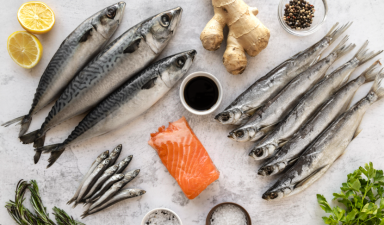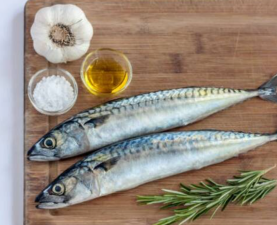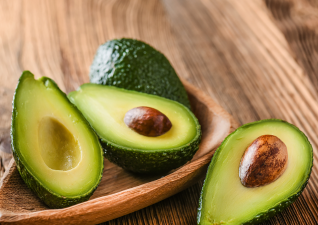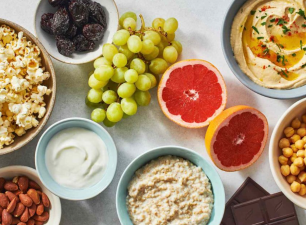Omega-3 fatty acids are a group of polyunsaturated fatty acids commonly found in deep-sea fish and some plants, such as soybeans, nuts, rapeseed oil, and flaxseed. They are highly beneficial to human health. Research has shown that omega-3s can reduce the production of inflammatory factors, prevent cardiovascular disease, improve vision, prevent cancer progression, maintain bone density, and prevent obesity and diabetes.
Omega-3 fatty acids cannot be synthesized by the human body, but they are essential nutrients for the synthesis of various hormones and endogenous substances. Only by supplementing these fatty acids with food can the body's physiological functions function normally. Omega-3s are now gradually becoming part of people's daily lives. Many foods, such as health foods for the elderly and infant nutrition products, are fortified with omega-3s. Animal Sources (Contains DHA/EPA, Highly Absorbed)
1.Deep-Sea Fish
Best Choices: Salmon (approximately 2.6g Omega-3 per 100g), Sardines (1.46g per 100g), Mackerel (1.3g EPA + 1.1g DHA per 100g), Cod
Other Recommendations: Pacific Saury, Tuna, Anchovies
Seafood
Oysters (329mg Omega-3 per 6 pieces), Kelp/Seaweed (Contains DHA and EPA), Shrimp
Specialty Eggs
Omega-3 Eggs: Eggs produced by chickens fed a diet such as flaxseed contain twice the Omega-3 content of regular eggs.
2. Plant-Based Sources (Contains ALA, requires conversion)
Seeds
Flaxseeds (56g Omega-3 per 100g), chia seeds (35.6g per 100g), pumpkin seeds/sunflower seeds
Nuts
Walnuts (9g Omega-3 per 100g), almonds
Beans and Legumes
Soybeans (6.8g per 100g), tofu (100g per day meets basic requirements)
Dark Greens
Spinach (704mg per 100g), broccoli/cauliflower (approximately 200mg per serving), red cabbage/Brussels sprouts
Vegetable Oils
Flaxseed oil (53% Omega-3), rapeseed oil/walnut oil (suitable for cold dishes)
3.Special Supplements
Seal Oil/Fish Oil: Each capsule contains high concentrations of EPA+DHA, suitable for those with dietary deficiencies.
Algae Extract: Algae oil is an excellent choice for vegetarians to obtain DHA.
Note:
Deep-sea fish should be aware of the risk of mercury contamination, so small fish should be preferred. Plant-based omega-3 conversion rates are low, so vegetarians should increase their intake or combine it with algae products. Dietary supplements should be diversified, avoiding reliance on a single food group. Individuals with specific conditions should adjust their intake accordingly.










